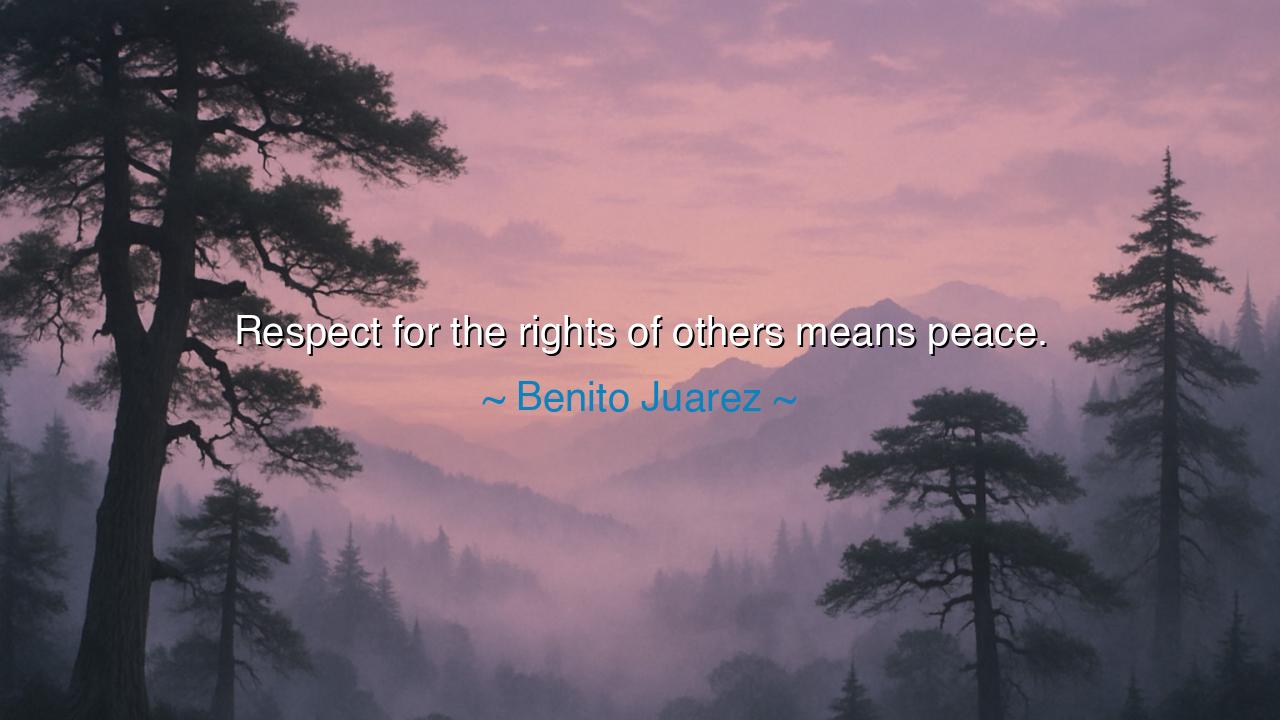
Respect for the rights of others means peace.






Benito Juárez, the great reformer of Mexico, uttered words that echo with the simplicity of truth and the gravity of justice: “Respect for the rights of others means peace.” In this short sentence lies a law more powerful than armies and more enduring than empires. For true peace does not rest upon treaties alone, nor upon the silence of cannons, but upon the recognition of dignity—that every human being, every people, every nation has rights that must not be trampled.
To respect the rights of others is to accept that our freedom ends where another’s begins, and that harmony can never be built upon domination. Juárez, who rose from humble origins as an indigenous Zapotec to lead a nation, knew well the sting of oppression and the burning thirst for equality. His wisdom was born not from theory but from the lived struggle of one who saw his people denied their place, and who understood that peace would come not from conquest, but from mutual respect.
This truth resounds across the ages. Consider the story of Mahatma Gandhi in India. He sought not to destroy the British, but to awaken them to the rights of the Indian people. His cry was not for vengeance but for recognition: that a nation has the right to govern itself, and that dignity cannot be withheld. When this respect began to take root, peace became possible. Thus we see the universality of Juárez’s teaching: conflict endures wherever rights are ignored, and peace blossoms wherever they are honored.
The ancients, too, whispered this wisdom. In the words of Confucius, harmony in society begins with justice, and justice begins with respecting the order of human relationships. In Roman law, too, peace was secured not by swords alone, but by the principle that each citizen held rights under the protection of the state. Again and again, history teaches us: peace without respect is an illusion. It may last for a moment, but it will crumble like a house built upon sand.
Juárez himself proved this principle through action. During the French intervention in Mexico, when foreign powers sought to impose an emperor, Juárez did not yield. He defended the sovereignty and rights of his people, knowing that without self-determination there could be no peace. His victory was not merely political, but moral: he showed that a nation, like a person, must be respected if harmony is to endure.
O children of tomorrow, take these words as a compass: peace begins with respect. In your homes, in your friendships, in your nations—when the rights of others are disregarded, strife will surely follow. But when each person honors the boundaries and dignity of another, peace flows as naturally as a river down the mountain.
The lesson is clear: if you desire peace, practice respect. Listen before judging. Recognize the humanity in those who differ from you. Do not seek to dominate, but to walk alongside. In this way, conflicts that might have hardened into hatred will dissolve into understanding.
Thus let the words of Juárez guide your steps: “Respect for the rights of others means peace.” Carve this truth into your heart, live it in your actions, and pass it to your children. For only when respect is universal will peace be lasting, and only when peace is lasting will humanity fulfill its higher calling.






AAdministratorAdministrator
Welcome, honored guests. Please leave a comment, we will respond soon